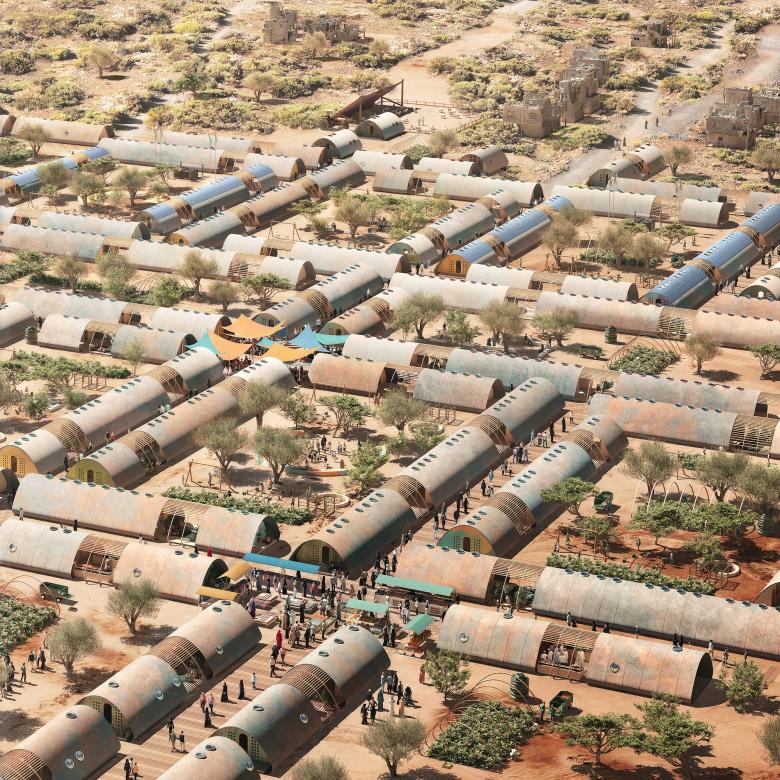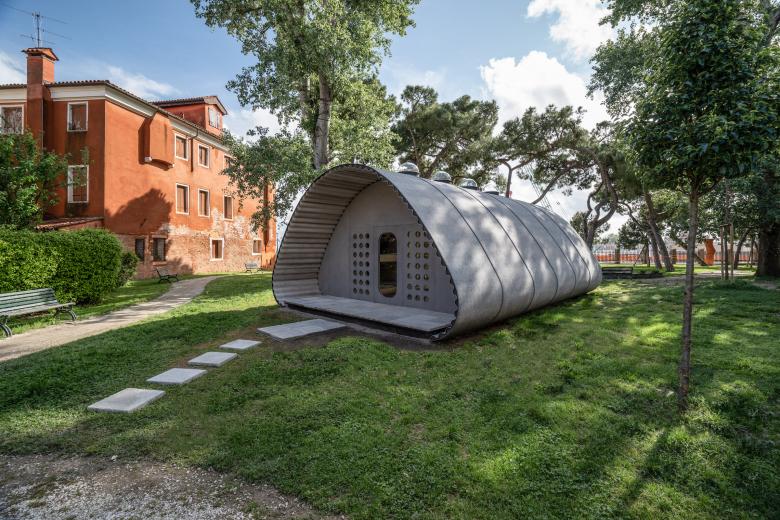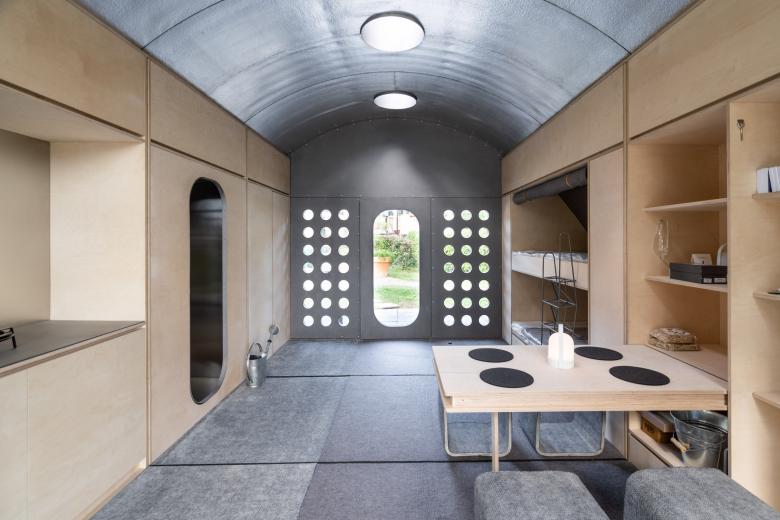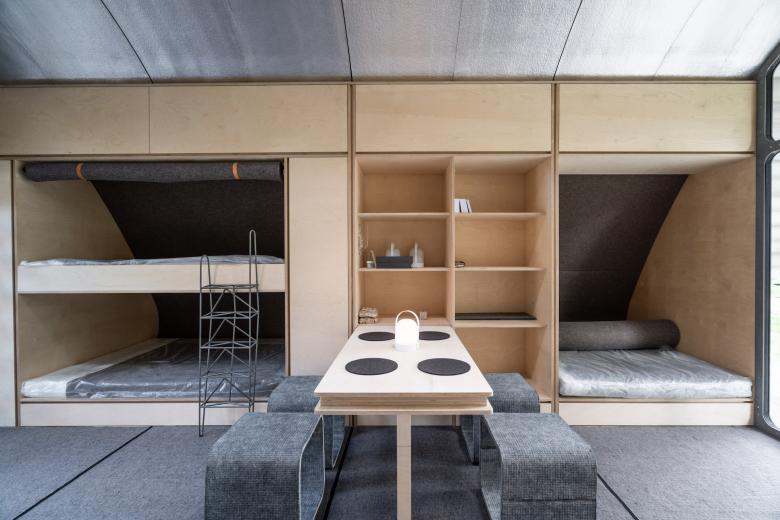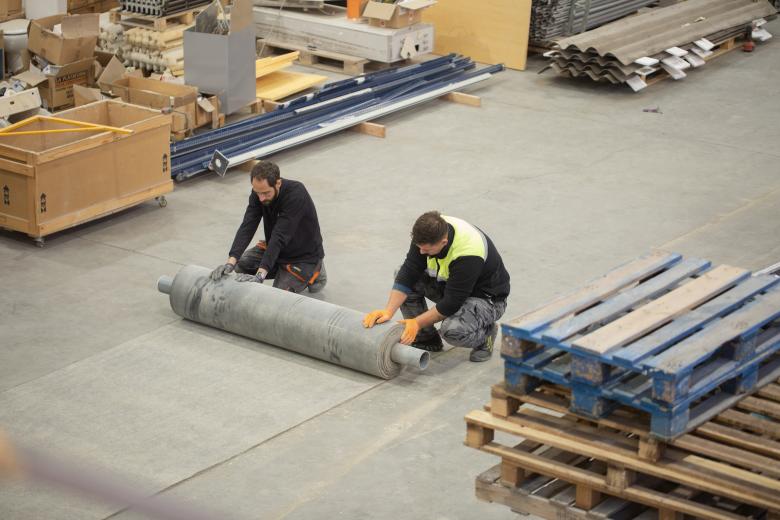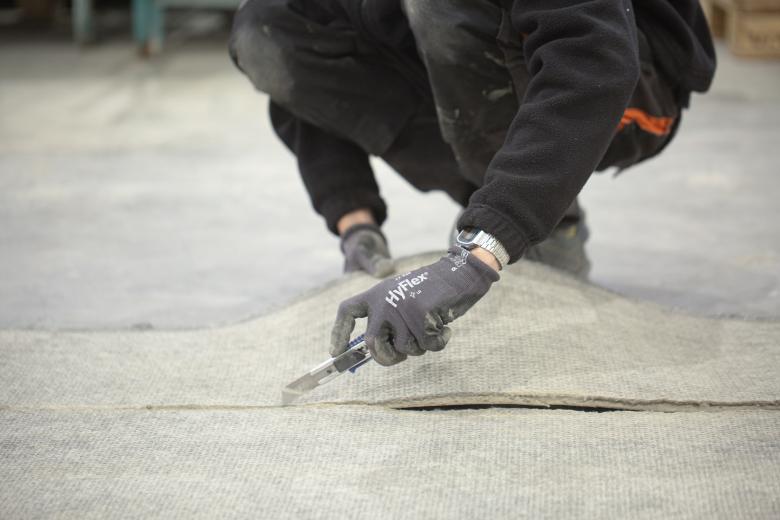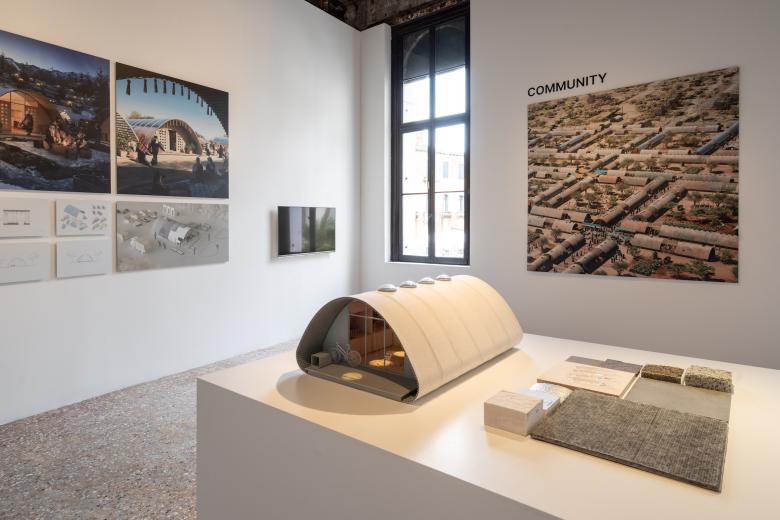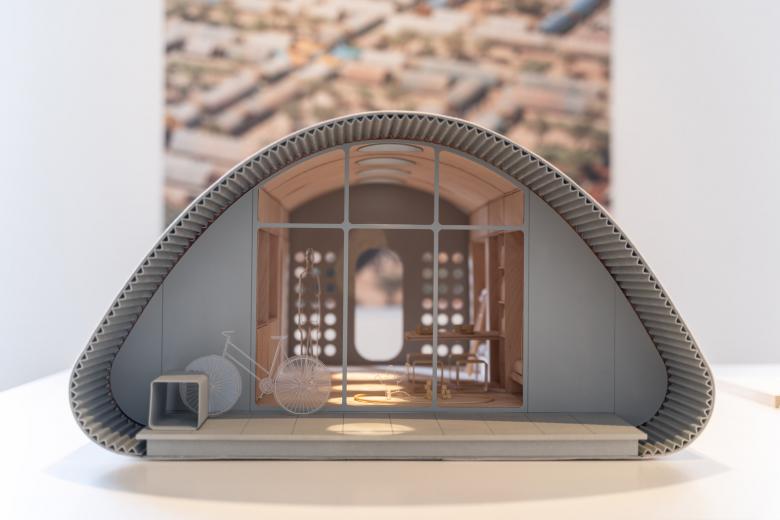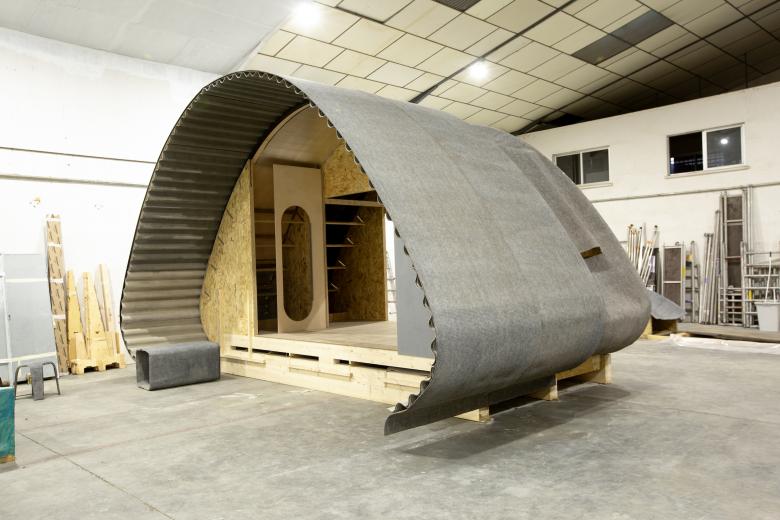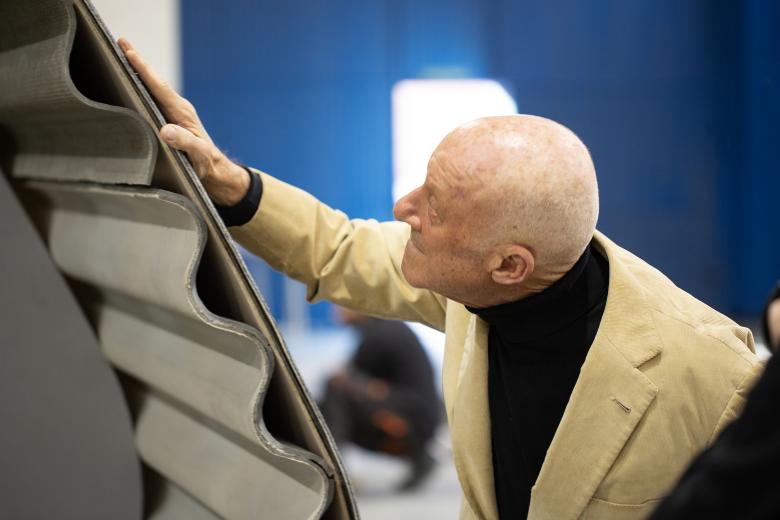Is the future of humanitarian housing in concrete? A prototype of the Essential Homes Research Project, devised by the Norman Foster Foundation (NFF) and covered with rollable concrete sheets from Holcim, is on display at the Time Space Existence exhibition in Venice.
As implied in its name, the Essential Homes Research Project takes the relatively permanent conditions of temporary refugee camps and emergency shelters as its starting point: “We should aim to design homes, not temporary shelters,” the NFF website says, “and we should be creating communities instead of camps.” And what is more permanent than concrete? But the proposal takes a somewhat novel approach, opting for rollable sheets produced with low-carbon cement (covering corrugated metal sheets and "smart" insulation systems) in lieu of more traditional precast concrete panels or poured-in-place concrete. The result is a handsome shelter that does not overtly display its concrete credentials.
The supposedly low-carbon, potentially mass-produced Essential Homes Research Project takes a decidedly different approach than Yasmeen Lari's much lauded zero-carbon hand-built homes in Pakistan. While Lari's shelters involve training programs that allow communities to build their own shelters from bamboo, mud, and other readily available materials, the project by NFF and Holcim is made from numerous industrial products (rolled concrete from Concrete Canvas, insulation from Airium and Elevate, corrugated metal sheets) that could never be produced without the involvement of big companies with large-scale factories.
If the Essential Homes Research Project is a commendable approach to emergency shelters and camps can be judged by visitors to the Time Space Existence exhibition during the run of the Venice Architecture Biennale: The prototype is on display at Giardini della Marinaressa and background on the project is found within Palazzo Mora.

